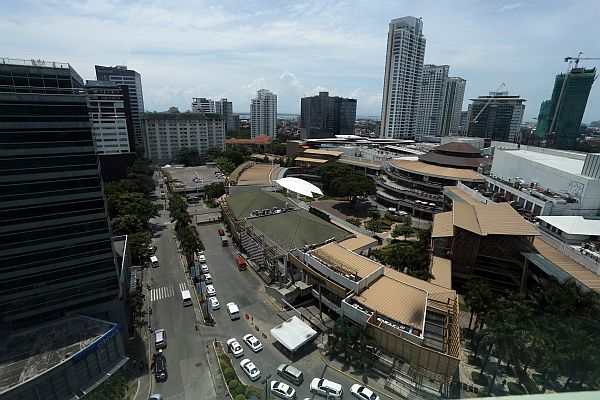Cebu City to raise business taxes of banks, financial institutions

Cebu City will be raising its business taxes for financial institutions following the passing of an amendatory ordinance by the City Council from 50% of 1% of gross receipts for the preceding calendar year to 60% to 1%. | CDN FILE PHOTO
CEBU CITY, Philippines — The Cebu City government will be raising the business taxes of banks and other financial institutions in the city following the passing of an amendatory ordinance by the City Council increasing the tax by 25 percent.
The City Council passed the ordinance proposed by Councilor Raymond Alvin Garcia, which seeks to increase the business taxes from 50 percent of 1 percent of their gross receipts for the preceding calendar year to 60 percent of 1 percent.
According to the Local Government Code, the local government units (LGU) may levy taxes to financial institutions including banks provided they do not impose a tax of more than 75 percent of 1 percent of their gross receipts for the preceding calendar year.
In the amended ordinance, the city also defined the gross receipts to include interests from loans and discounts, interest earned and actually collected on interbank loans, rental properties, income earned and actually collected from acquired assets, income from sale and exchange of assets or property, cash dividends earned and received on equity investments, bank commissions from lending activities, and income component of rentals from financial leasing.
This would also include income from non-interest-bearing activities or transactions such as but not limited to transaction fees, service fees, finance charges and credits, and surcharges.
For insurance institutions gross receipts would include insurance premiums actually collected, interest earnings on loans and discounts actually collected, rentals actually collected from property owned by the insurance companies, income actually collected from acquired assets, and cash dividends received on equity investments.
Finally, gross receipts for the financing companies include interests on loans and discounts, interest earned and actually collected on interbank loans, rental of property, income from sale or exchange of assets or property, cash dividends earned and received on equity investments, and income components of rentals for financial leasing.
Lawyer Jerone Castillo, the head of the City Treasurer’s Office (CTO), said that the increase in business tax for financial institutions was patterned in other LGUs.
“Other LGUs have already increased their taxes, yet Cebu City remained low. With this tax increase, it will also increase our collection and income in the city,” said Castillo.
The expected increase in the collection would also help the CTO reach its P8.9 billion target for 2020.
The amending ordinance is awaiting the signature of Mayor Edgardo Labella for its implementation. /rcg
Disclaimer: The comments uploaded on this site do not necessarily represent or reflect the views of management and owner of Cebudailynews. We reserve the right to exclude comments that we deem to be inconsistent with our editorial standards.
